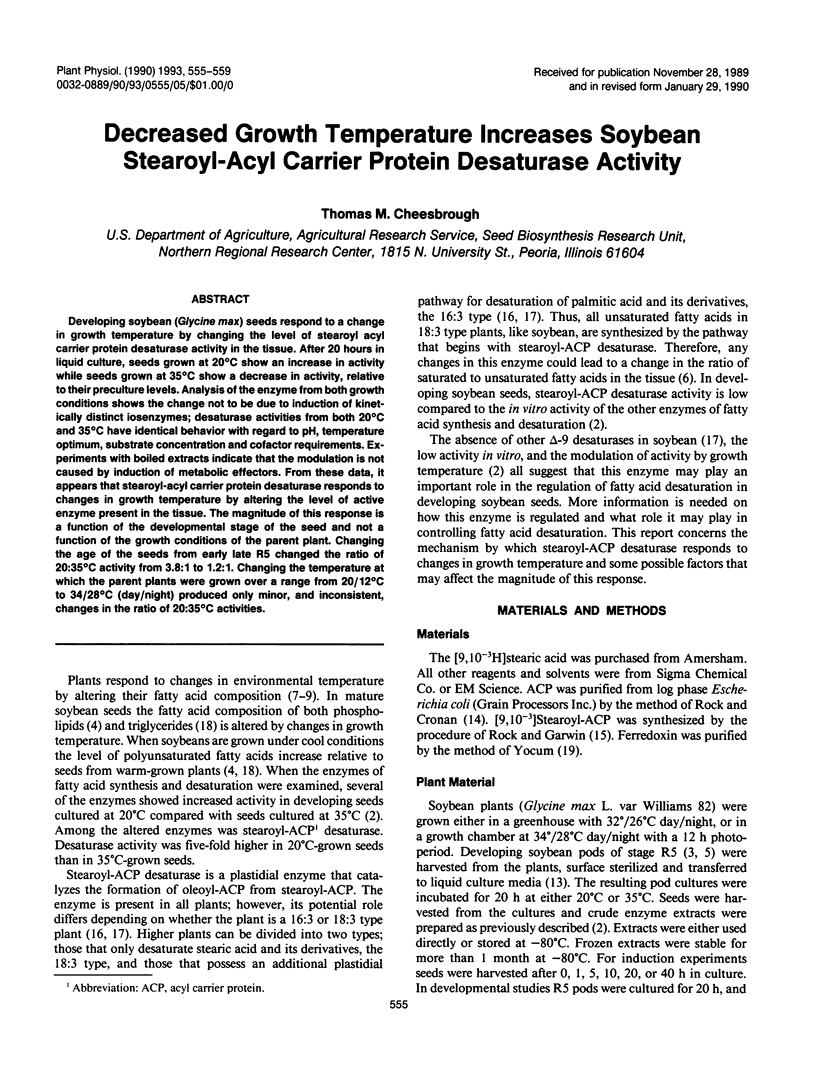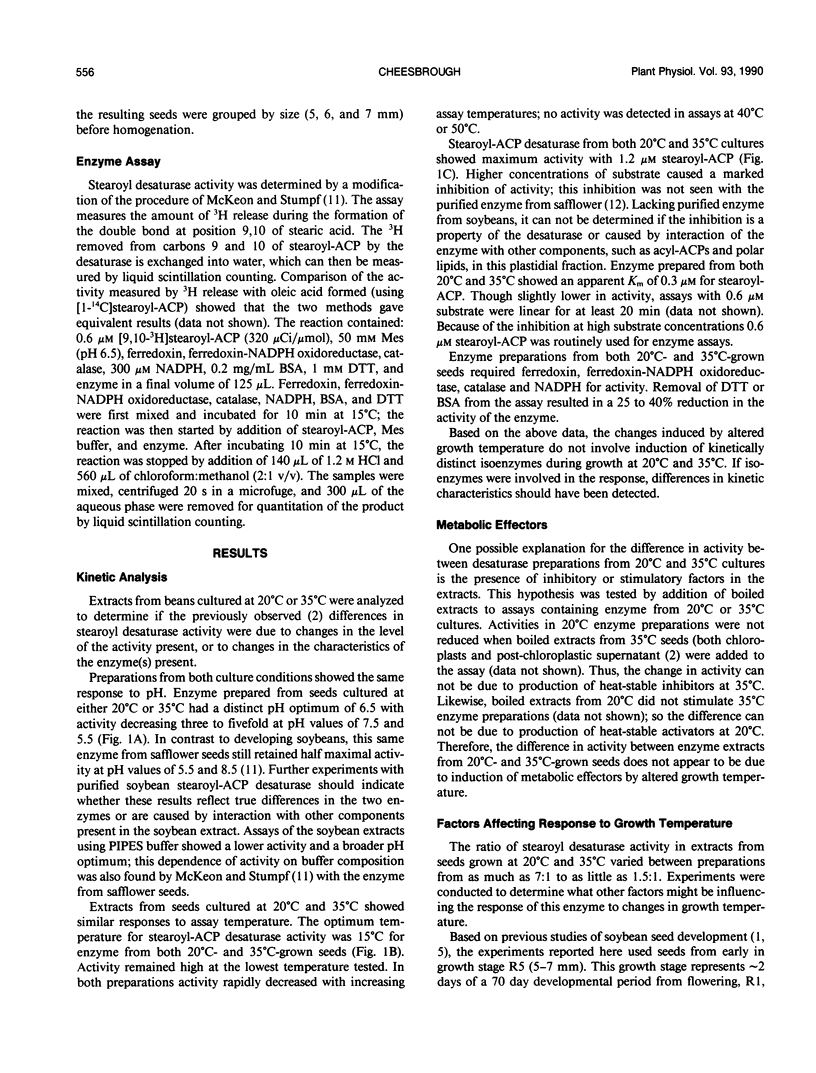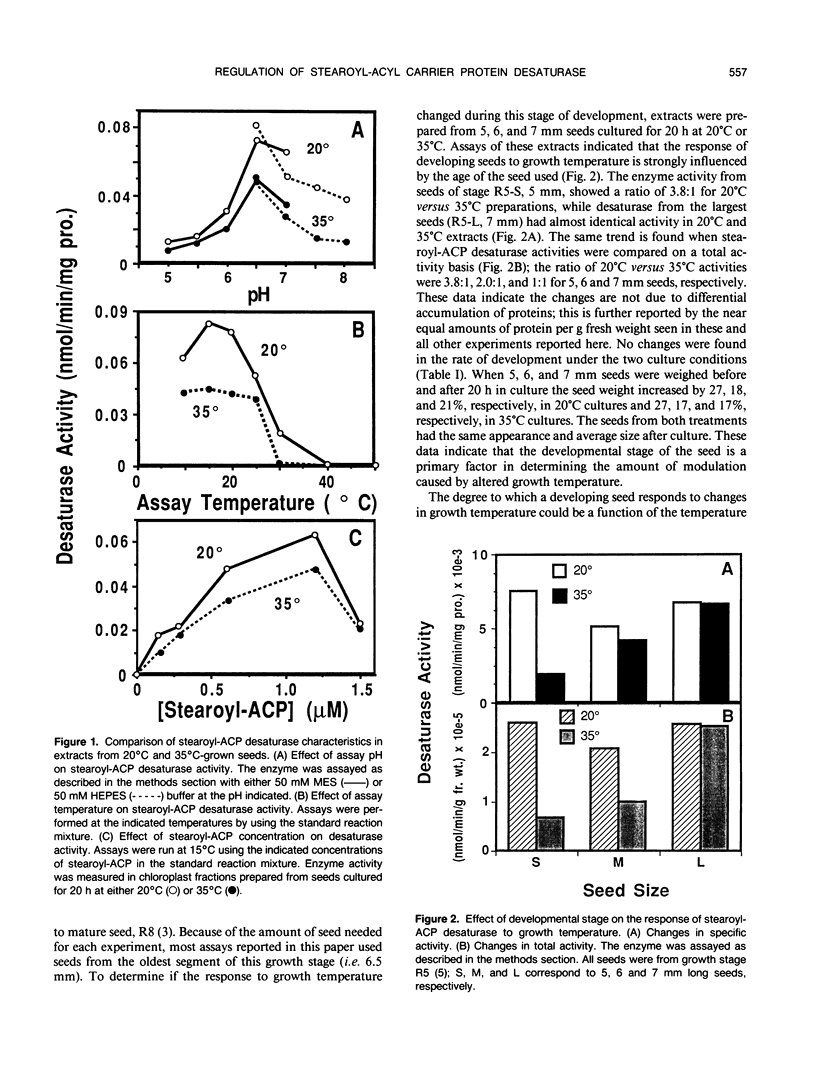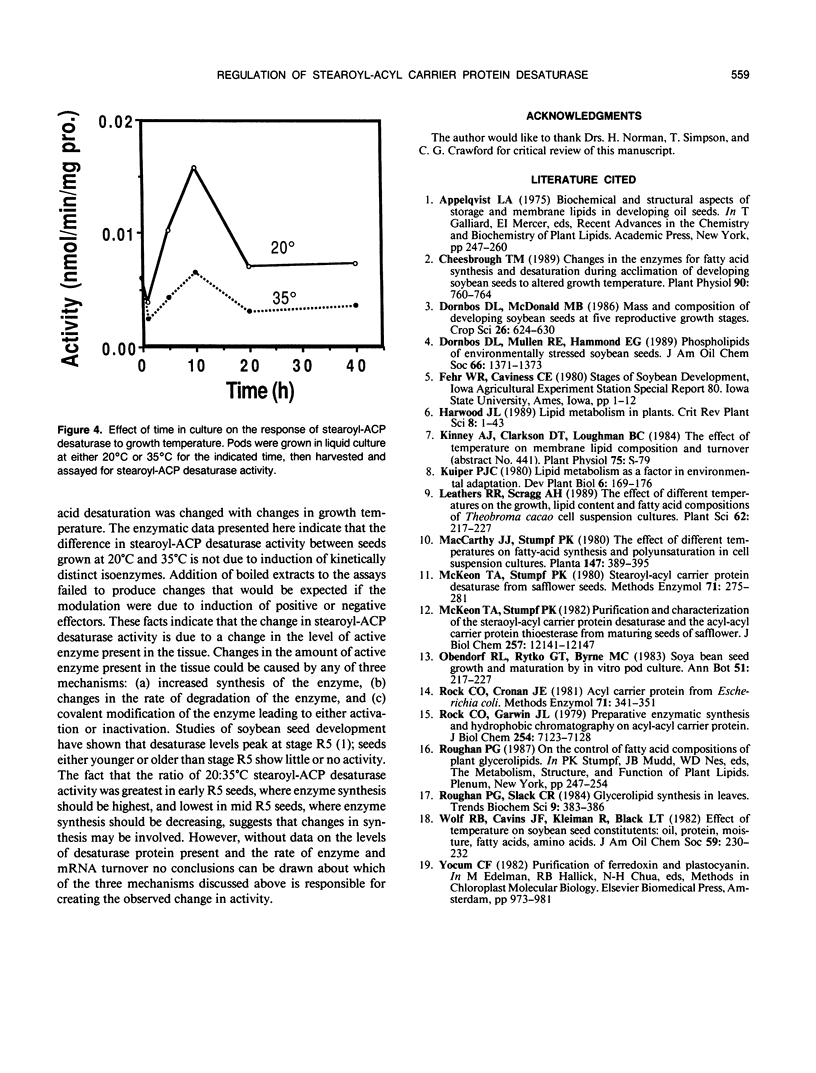Abstract
Developing soybean (Glycine max) seeds respond to a change in growth temperature by changing the level of stearoyl acyl carrier protein desaturase activity in the tissue. After 20 hours in liquid culture, seeds grown at 20°C show an increase in activity while seeds grown at 35°C show a decrease in activity, relative to their preculture levels. Analysis of the enzyme from both growth conditions shows the change not to be due to induction of kinetically distinct iosenzymes; desaturase activities from both 20°C and 35°C have identical behavior with regard to pH, temperature optimum, substrate concentration and cofactor requirements. Experiments with boiled extracts indicate that the modulation is not caused by induction of metabolic effectors. From these data, it appears that stearoyl-acyl carrier protein desaturase responds to changes in growth temperature by altering the level of active enzyme present in the tissue. The magnitude of this response is a function of the developmental stage of the seed and not a function of the growth conditions of the parent plant. Changing the age of the seeds from early late R5 changed the ratio of 20:35°C activity from 3.8:1 to 1.2:1. Changing the temperature at which the parent plants were grown over a range from 20/12°C to 34/28°C (day/night) produced only minor, and inconsistent, changes in the ratio of 20:35°C activities.
Full text
PDF




Selected References
These references are in PubMed. This may not be the complete list of references from this article.
- Cheesbrough T. M. Changes in the Enzymes for Fatty Acid Synthesis and Desaturation during Acclimation of Developing Soybean Seeds to Altered Growth Temperature. Plant Physiol. 1989 Jun;90(2):760–764. doi: 10.1104/pp.90.2.760. [DOI] [PMC free article] [PubMed] [Google Scholar]
- Johnson B. E., Dietert R. R., Wassom D. L. The relative importance of Ah versus H-2 genotype on Trichinella resistance following exposure to 3-methylcholanthrene. Int J Immunopharmacol. 1989;11(2):217–227. doi: 10.1016/0192-0561(89)90074-x. [DOI] [PubMed] [Google Scholar]
- McKeon T. A., Stumpf P. K. Purification and characterization of the stearoyl-acyl carrier protein desaturase and the acyl-acyl carrier protein thioesterase from maturing seeds of safflower. J Biol Chem. 1982 Oct 25;257(20):12141–12147. [PubMed] [Google Scholar]
- Rock C. O., Cronan J. E., Jr Acyl carrier protein from Escherichia coli. Methods Enzymol. 1981;71(Pt 100):341–351. doi: 10.1016/0076-6879(81)71043-7. [DOI] [PubMed] [Google Scholar]
- Rock C. O., Garwin J. L. Preparative enzymatic synthesis and hydrophobic chromatography of acyl-acyl carrier protein. J Biol Chem. 1979 Aug 10;254(15):7123–7128. [PubMed] [Google Scholar]


